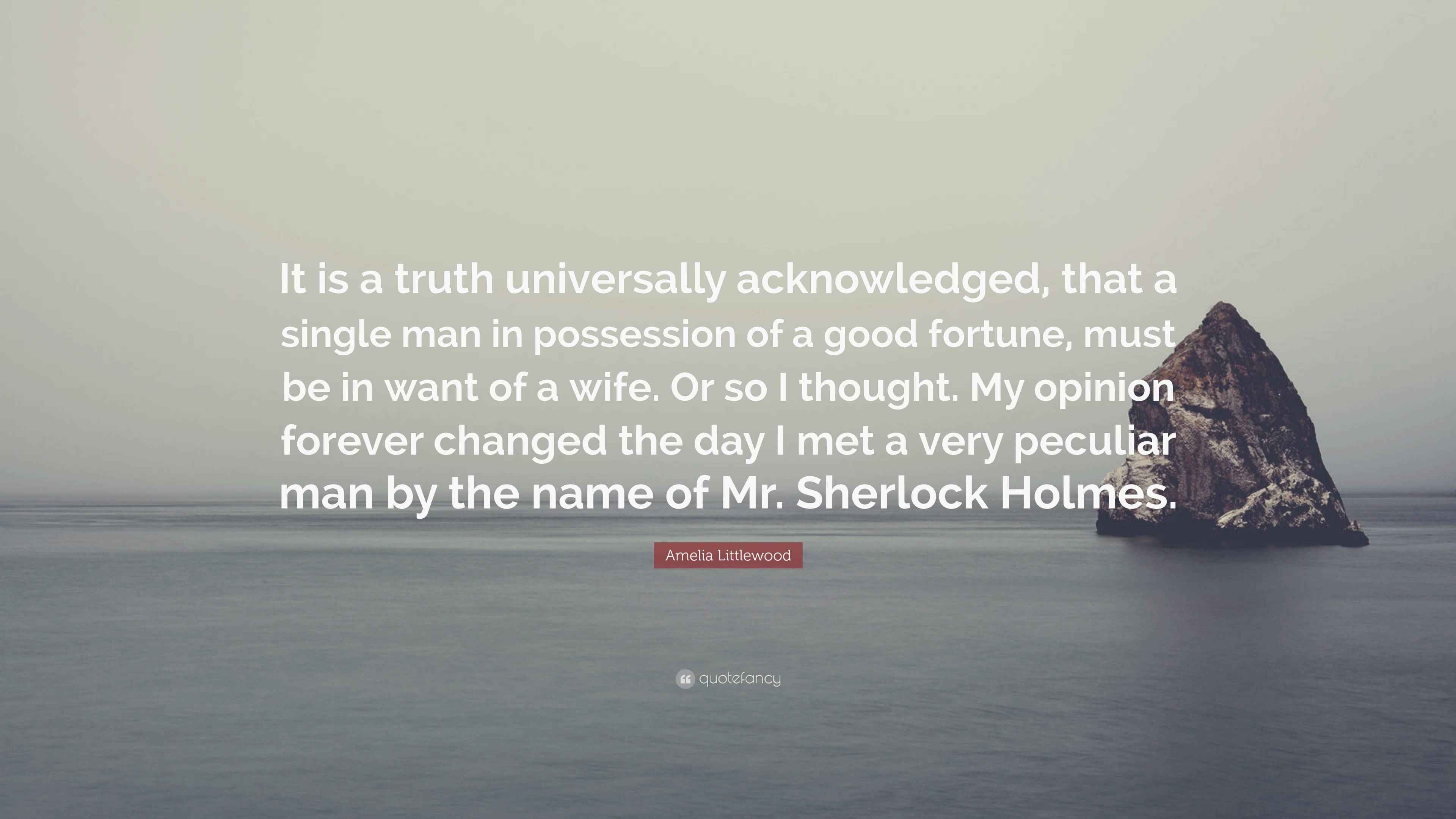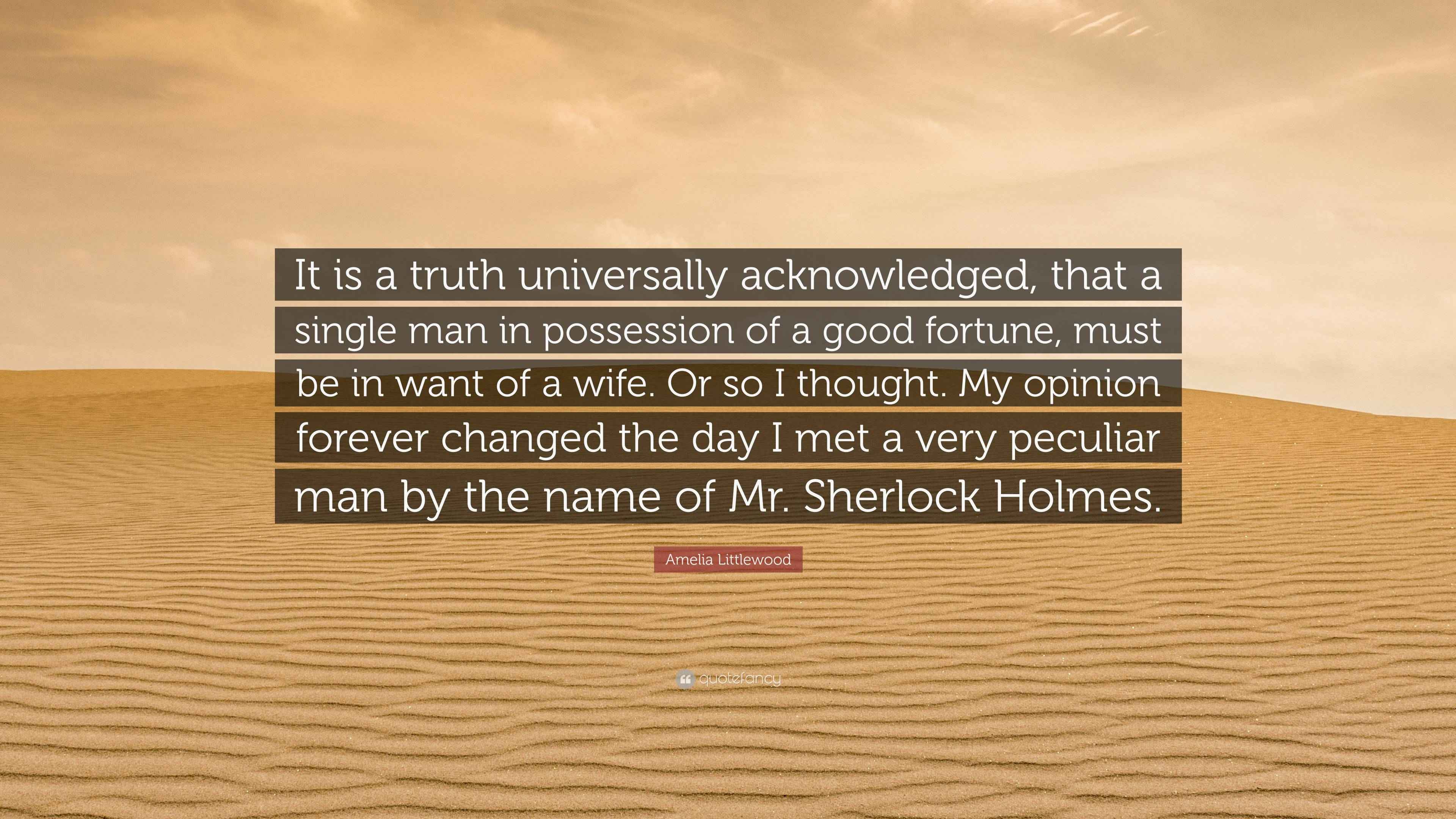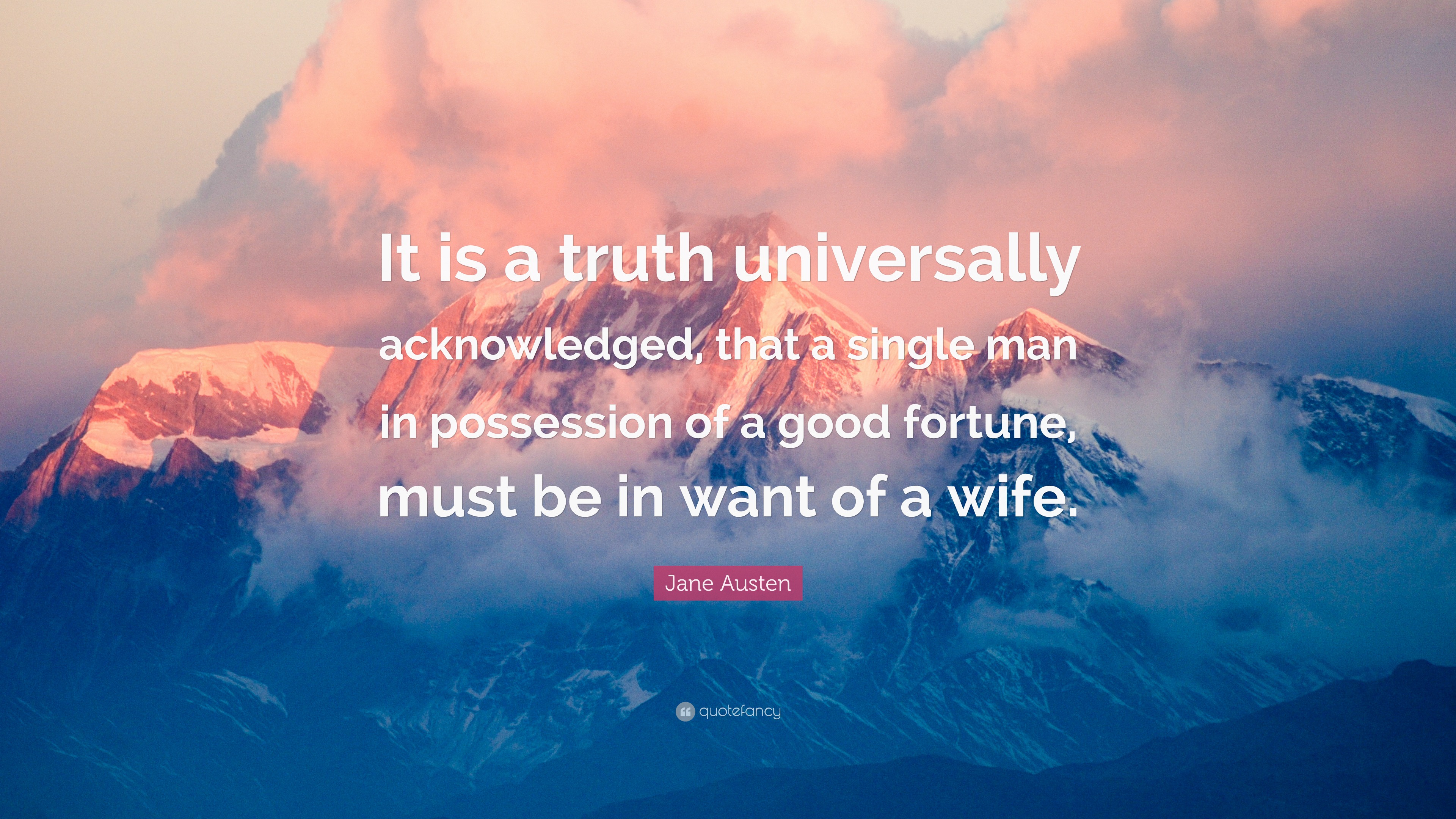There’s this famous line that always sticks in people’s heads: “It is truth universally acknowledged that a single man in possession of a good fortune must be in want of a wife.” Sounds familiar, right? It’s from Jane Austen’s Pride and Prejudice, and it’s one of those phrases that just sticks with you. But have you ever stopped to think about what it really means in today’s world? Is it still true? Or has the world moved on from this idea? Let’s dive in and unpack this classic truth with a modern twist.
Let’s be real, the world has changed a lot since Jane Austen penned those words. Back then, marriage was often seen as a practical arrangement, especially for women who relied on men for financial stability. But nowadays, things are a little different. People are more focused on personal growth, career ambitions, and finding meaningful connections. So, does this universal truth still hold water? That’s the question we’re here to explore.
This article isn’t just about dissecting a line from a classic novel; it’s about understanding how societal norms have evolved. We’ll look at the history behind this statement, its relevance today, and what it means for relationships in the modern world. Whether you’re single, married, or somewhere in between, there’s something here for everyone. Let’s get started!
Table of Contents
- The Historical Context: Why Was This Truth Acknowledged?
- Societal Norms and Their Evolution
- Modern Love: Is the Truth Still Universal?
- The Numbers Don’t Lie: Relationship Stats Today
- Psychological Perspectives on Singlehood
- Debunking Myths About Single Men
- A Closer Look at Jane Austen: The Woman Behind the Words
- The Impact of This Truth on Modern Literature
- What Does the Future Hold for Relationships?
- Final Thoughts: Is the Truth Still Universal?
The Historical Context: Why Was This Truth Acknowledged?
Let’s rewind a bit and take a closer look at the time period when Jane Austen wrote Pride and Prejudice. The early 19th century was a vastly different world. For many women, marriage was more than just a romantic partnership; it was an economic necessity. Men with wealth and status were highly sought after because they could provide financial security. In this context, the idea that a wealthy single man needed a wife made perfect sense.
But it wasn’t just about money. Social status played a huge role too. Marriages were often arranged to maintain or improve family standing. Love, while important, wasn’t always the primary factor. So, when Austen wrote her famous line, she was reflecting the realities of her time. It was less about romance and more about practicality.
Marriage as a Social Contract
Back in the day, marriage was seen as a social contract. Families would negotiate terms, and the union was often sealed with a dowry. This system ensured that both parties benefited financially and socially. For men, marrying a woman from a good family could enhance their reputation. For women, marrying a wealthy man meant a life of comfort and security. It’s no wonder this truth was universally acknowledged back then.
- Discovering Molly Noblitt Today A Journey Through Her Life And Career
- Nastia Liukin A Journey Through Strength And Struggles
Societal Norms and Their Evolution
Fast forward to today, and things have changed dramatically. Women are no longer dependent on men for financial support. They’re breaking barriers in every field and carving out their own paths. The idea of marriage as a necessity has shifted. Now, people marry for love, companionship, and shared values. It’s a choice, not a requirement.
But that doesn’t mean the old truth is completely irrelevant. While the reasons for marriage have evolved, the desire for connection and partnership remains strong. People still want meaningful relationships, whether they’re looking for a spouse or just a close friend. The universal truth might have taken on a new form, but its essence is still there.
Changing Expectations
Expectations around relationships have shifted over time. In the past, people got married young and stayed married for life. Today, people are waiting longer to tie the knot, and divorce rates have increased. This reflects a broader shift in how we view relationships. We’re more focused on personal fulfillment and mutual respect than on societal expectations.
Modern Love: Is the Truth Still Universal?
Now let’s talk about modern love. Is the idea that a wealthy single man must want a wife still relevant? Well, it depends on who you ask. Some people might argue that wealth still plays a role in attracting partners. After all, financial stability is still an attractive quality. But others might say that times have changed, and people are more focused on emotional compatibility and shared interests.
One thing’s for sure: the landscape of modern love is diverse. There’s no one-size-fits-all approach to relationships. Some people prioritize career and independence, while others value family and partnership. The universal truth might not apply to everyone, but it still holds a kernel of wisdom.
The Role of Wealth in Modern Relationships
While wealth isn’t the only factor in modern relationships, it still matters. Financial stability can reduce stress and create opportunities for shared experiences. But it’s not the be-all and end-all. People are looking for partners who share their values and support their dreams. So, while a wealthy single man might attract attention, it’s the person behind the money that really matters.
The Numbers Don’t Lie: Relationship Stats Today
Let’s take a look at some stats to see how relationships have changed over time. According to the Pew Research Center, the average age of first marriage has increased significantly. In 1960, men married at 22.8 years old, and women at 20.3. Today, those numbers have risen to 30.4 for men and 28.2 for women. That’s a big shift!
Another interesting stat is the divorce rate. While it’s often reported that 50% of marriages end in divorce, the actual number is closer to 40%. This shows that while relationships are more fluid than before, they’re still valued by many.
Key Takeaways from the Stats
- People are waiting longer to get married.
- Divorce rates are lower than commonly believed.
- Relationships are more about choice than necessity.
Psychological Perspectives on Singlehood
Psychologists have a lot to say about singlehood and relationships. Studies show that being single can be beneficial for personal growth and self-discovery. It gives people time to focus on their own goals and interests without the distractions of a partner. But that doesn’t mean being single is easy. Loneliness and social pressure can be real challenges.
On the flip side, being in a relationship can provide emotional support and a sense of belonging. It’s all about finding the right balance. Whether you’re single or coupled up, what matters most is your mental and emotional well-being.
The Benefits of Being Single
- More time for personal development.
- Freedom to pursue your passions.
- Opportunities for self-discovery.
Debunking Myths About Single Men
There are a lot of stereotypes out there about single men. Some people think they’re all playboys or commitment-phobes. But the truth is, single men are just as diverse as anyone else. They have different goals, values, and priorities. Some are focused on their careers, while others are actively looking for a partner. It’s important to look beyond the stereotypes and see people for who they really are.
Another myth is that all wealthy single men are looking for wives. While some might be, others might not be ready for a serious commitment. It’s all about individual preferences and circumstances. So, before you make assumptions, take the time to get to know the person.
A Closer Look at Jane Austen: The Woman Behind the Words
Jane Austen was a trailblazer in her own right. Born in 1775, she grew up in a world where women had limited opportunities. Despite these challenges, she became one of the most celebrated writers of her time. Her novels explored themes of love, marriage, and social class, often with a sharp wit and keen observation.
Here’s a quick rundown of her life:
| Born | December 16, 1775 |
|---|---|
| Died | July 18, 1817 |
| Notable Works | Pride and Prejudice, Sense and Sensibility, Emma |
| Family | Grew up in a large family with six siblings |
Her Impact on Literature
Jane Austen’s work continues to inspire writers and readers alike. Her novels offer a timeless perspective on human nature and relationships. They remind us that while times may change, the desire for connection and understanding remains constant.
The Impact of This Truth on Modern Literature
This famous line from Pride and Prejudice has had a lasting impact on literature. It’s been referenced, parodied, and reinterpreted countless times. Authors continue to explore themes of love, marriage, and societal expectations in their work. Whether it’s a romance novel or a contemporary drama, the idea of universal truths about relationships remains relevant.
But it’s not just literature that’s been influenced. This truth has also made its way into pop culture. Movies, TV shows, and even songs have referenced it in one form or another. It’s a testament to the power of Austen’s words and the enduring nature of her insights.
What Does the Future Hold for Relationships?
As we look to the future, it’s clear that relationships will continue to evolve. Technology, changing social norms, and global connectivity are all shaping how people connect and form bonds. Virtual dating, long-distance relationships, and even AI-driven matchmaking are becoming more common.
But no matter how much things change, the core of relationships will remain the same. People will always seek connection, understanding, and love. The universal truth might take on new forms, but its essence will endure.
Key Predictions for the Future
- More emphasis on emotional intelligence.
- Increased acceptance of diverse relationship structures.
- Technology playing a bigger role in how we meet and connect.
Final Thoughts: Is the Truth Still Universal?
So, is the truth universally acknowledged that a single man in possession of a good fortune must be in want of a wife? The answer is both yes and no. While the reasons for marriage have changed, the desire for meaningful relationships remains constant. Whether you’re single or coupled up, what matters most is finding what works for you.
We hope this article has given you a new perspective on this classic truth. If you enjoyed it, feel free to leave a comment or share it with your friends. And if you’re looking for more insights into relationships and life, be sure to check out our other articles. After all, knowledge is power, and the more we understand, the better equipped we are to navigate the complexities of modern life.
- Unraveling The Mystery Who Was Aubreigh Wyatts Bully
- Molly Noblitt And Aubreigh Wyatt A Jail Saga Unveiled


